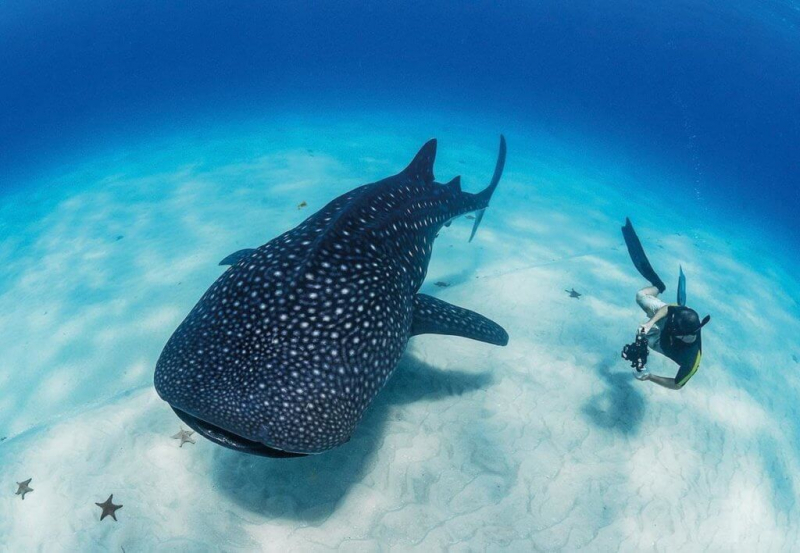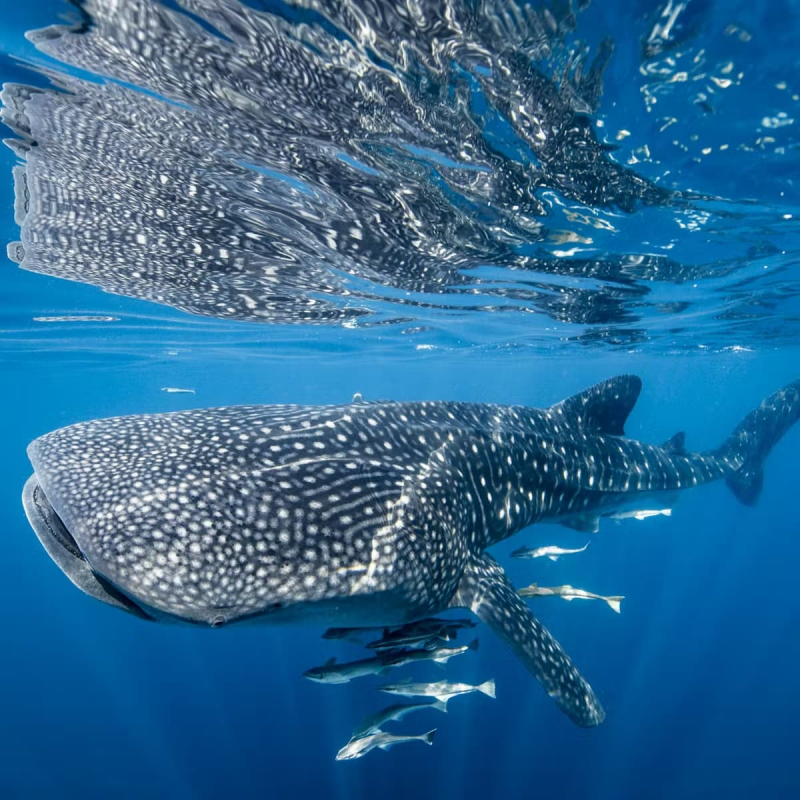Whale Shark - Maximum mass (tonnes): 21.5
The largest known extant fish species is the Whale Shark (Rhincodon typus), a slow-moving carpet shark that feeds on filters. The longest confirmed individual measured 18.8 meters in length (61.7 ft). The whale shark is the largest living non-mammalian vertebrate, and it holds several other records for size in the animal kingdom. It is the only living representative of the genus Rhincodon and the family Rhincodontidae, which is a member of the subclass Elasmobranchii of the class Chondrichthyes. It was categorized as a Rhinodontidae member before 1984.
The whale shark inhabits the open oceans of the tropics and is infrequently encountered in water that is colder than 21 °C (70 °F). Whale shark lifespans have been calculated to be between 80 and 130 years based on research on the growth rates of free-swimming sharks and vertebral growth bands. Only two other shark species—the megamouth shark and the basking shark—feed in a manner similar to that of whale sharks, which have very big mouths and are filter feeders. They don't pose a threat to people and eat mostly plankton and small fish. The name "whale shark" alludes to the fish's size, which can reach proportions comparable to some whale species, as well as its filter-feeding habits, which are comparable to those of baleen whales.












